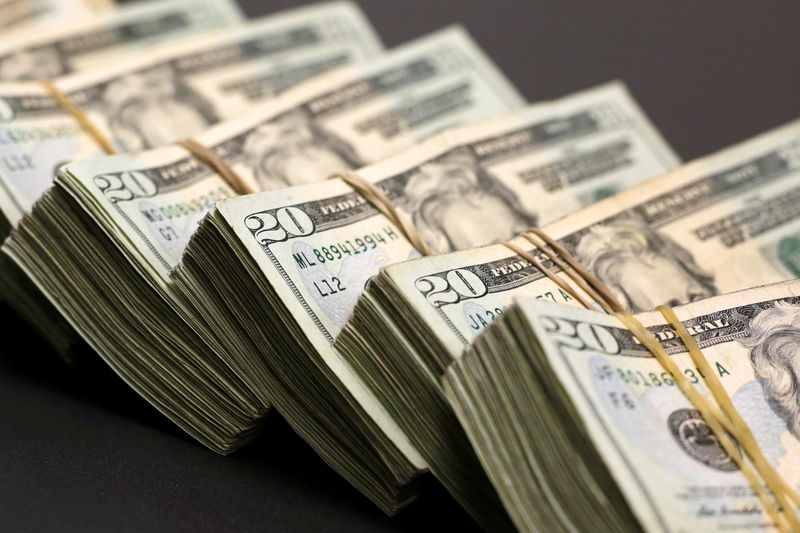By Geoffrey Smith
Investing.com -- The dollar traded mostly lower in early dealings in Europe on Tuesday, ahead of what is set to be a quiet day dominated by U.S. corporate earnings and sentiment.
By 3 AM ET (0700 AM GMT), the dollar index that tracks the greenback against a basket of developed market currencies was down 0.3% at 93.64%, after falling by the same amount already on Monday.
Most of the greenback’s losses were against commodity and emerging currencies, with the kiwi still surging after higher-than-expected September inflation figures brought the prospect of more aggressive interest rate hikes into play on Monday. Commodities in general remain red-hot, with copper, tin, crude oil and coal all trading at significant premiums for immediate delivery relative to futures markets. The Russian ruble rose to its highest since July 2020, while both the kiwi and Aussie rose over 0.7%.
However, the euro also rose by 0.3% to $1.1648, its highest in three weeks, while sterling – another currency supported by shifting interest rate expectations rose to a two-month high of $1.3775.
The dollar was undercut by a drop in U.S. bond yields, which have turned down after failing to breach their June high during last week’s inflation scare. The 10-year benchmark Treasury yield was down 1 basis point at 1.57%, in the wake of data on Monday showing a drop in U.S. industrial production in September.
The data calendar for Tuesday is relatively light, with only housing starts and building permit numbers out of the U.S. Instead, the day is filled with speeches from central bankers, including the Federal Reserve’s Mary Daly, Michelle Bowman, Chris Waller and, inevitably, Raphael Bostic. In Europe, Bank of England Governor Andrew Bailey, BoE chief economist Catherine Mann and European Central Bank chief economist Philip Lane are both due to appear.
Hungary’s central bank is expected to raise its key interest rate later for the fifth meeting in a row, by another 15 basis points to 1.80%. The forint is testing a three-month low against the euro at 360.56, one of a handful of central and eastern currencies that have been forced into an early tightening of monetary policy by rising inflation.
